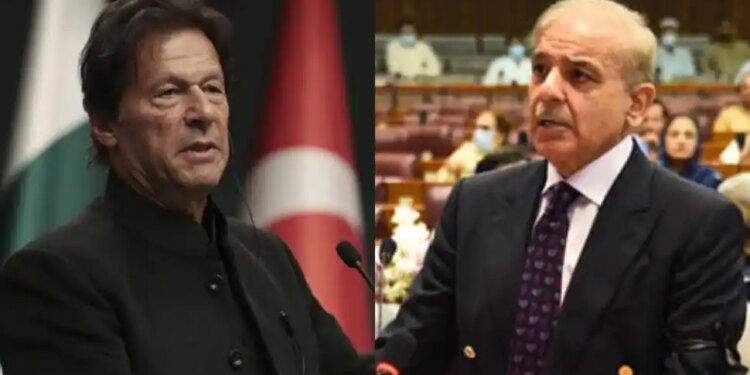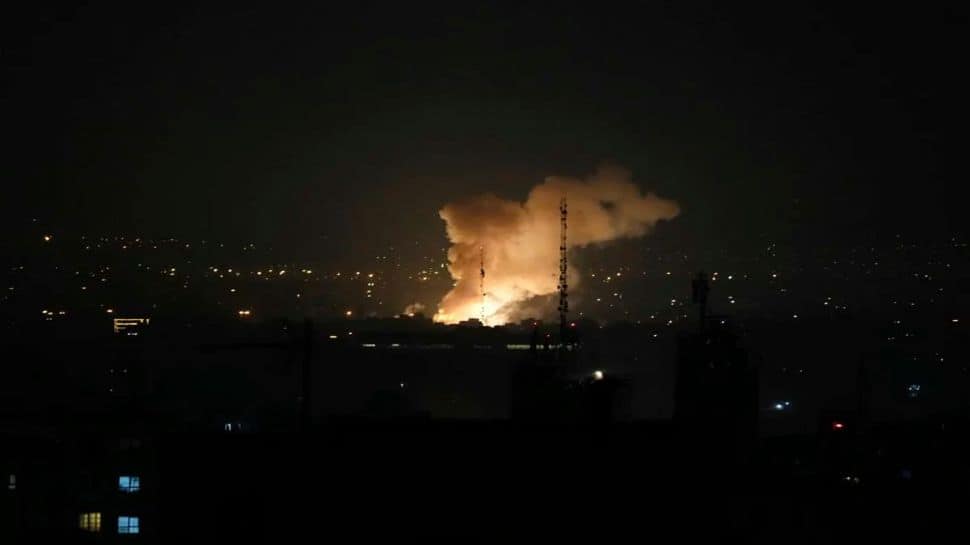New Delhi: Prime Minister Imran Khan lost a crucial trust vote in the National Assembly in the early hours of Sunday (April 10, 2022) and became the first premier in Pakistan’s history to be removed through a no-confidence motion.
The Opposition secured the support of 174 members in the 342-member National Assembly to bring an end to the cricketer-turned-politician’s nearly four years in power.
Pakistan political crisis: What has happened so far
Imran Khan, who came to power in 2018 with promises to create a ‘Naya Pakistan’, had lost the majority last month after some of the coalition partners decided to part ways with his party. The opposition then filed the no-confidence motion on March 8.
Khan, who had clung on for almost a week after a united opposition first tried to remove him, had so far managed to put off the no-confidence vote, which he claimed was part of a foreign-backed plot against him. His allies had then blocked the no-confidence motion last week and had dissolved parliament’s lower house. This was then followed by Pakistan’s Supreme Court intervening and allowing the vote to go through.
A special session was then convened on April 9 in the light of the verdict by the Supreme Court which on April 7 had declared as ‘unconstitutional’ a ruling by the deputy speaker to reject the no-trust move against Khan.
There were many twists and turns throughout Saturday, which started with the National Assembly meeting at 10:30 am (local time) but was postponed after half an hour until 12:30 pm. It reconvened at around 3:00 pm and it was announced that voting would be held at 8:00 pm.
#NASession #Parliament @AsadQaiserPTI @SMQureshiPTI @CMShehbaz @BBhuttoZardari @AndleebAbbas @KhawajaMAsif pic.twitter.com/I9Ril6kl9B
— National Assembly of Pakistan (@NAofPakistan) April 9, 2022
From today’s #session.#NAsession pic.twitter.com/kshLxavLSV
— National Assembly of Pakistan (@NAofPakistan) April 9, 2022
The proceedings were postponed again and finally started at 11:45 pm. The drama, however, continued as Speaker Asad Qaiser announced to step down as it was not possible for him to continue. He also nominated Ayaz Sadiq of Pakistan Muslim League-Nawaz to chair the session, who immediately started the voting process.
Khan was not present in the lower house at the time of voting and his party lawmakers staged a walkout.
Pakistan political crisis: What’s next
Candidates for Pakistan’s next prime minister are now due to file nomination papers and the country’s parliament will meet on Monday to elect a new PM. Shehbaz Sharif, the younger brother of three-time prime minister Nawaz Sharif, is the person most likely to be Pakistan’s next PM.
Sharif, who led a successful bid by the opposition in parliament to topple Imran Khan in a no-confidence vote, said that the cricket star-turned-politician’s departure was a chance for a new beginning.
“A new dawn has started … This alliance will rebuild Pakistan,” he had told parliament.
There, however, are still several procedural steps before Sharif can become Pakistan’s 23rd prime minister, although the opposition has consistently identified him as its sole candidate.
Meanwhile, Imran Khan has not commented publicly on his ouster but before the vote, he had called for protests.
“I am going to struggle,” he had said in an address to the nation on Friday.
“I tell all of my supporters across Pakistan, on Sunday, after Isha (evening) prayers, you all have to come out of your homes and protest peacefully against this imported government that is trying to come to power,” he had said.
(With agency inputs)







